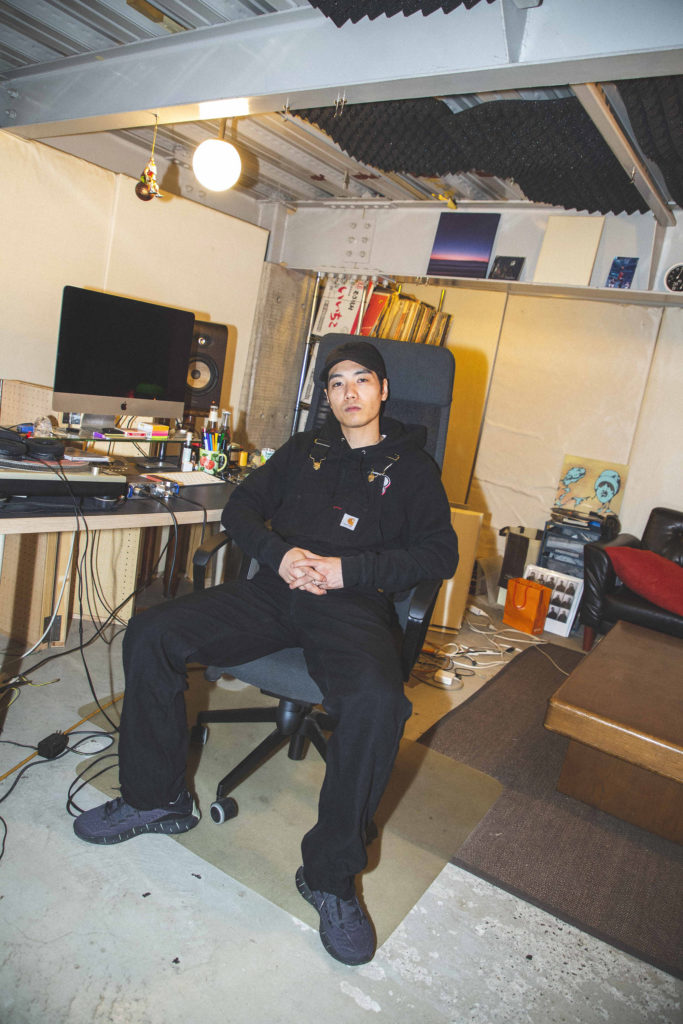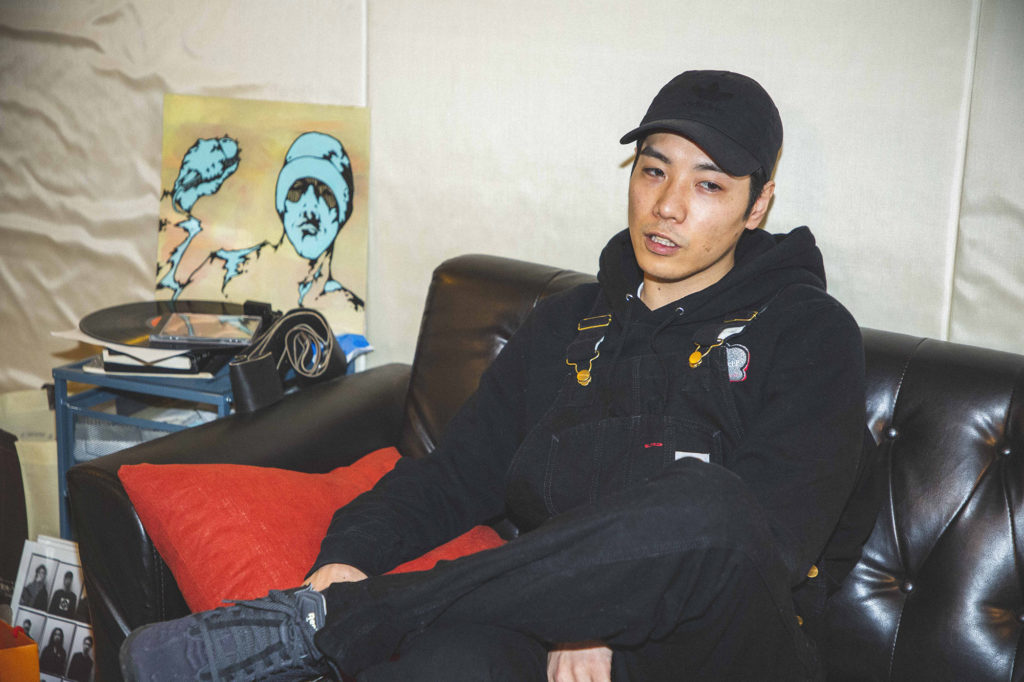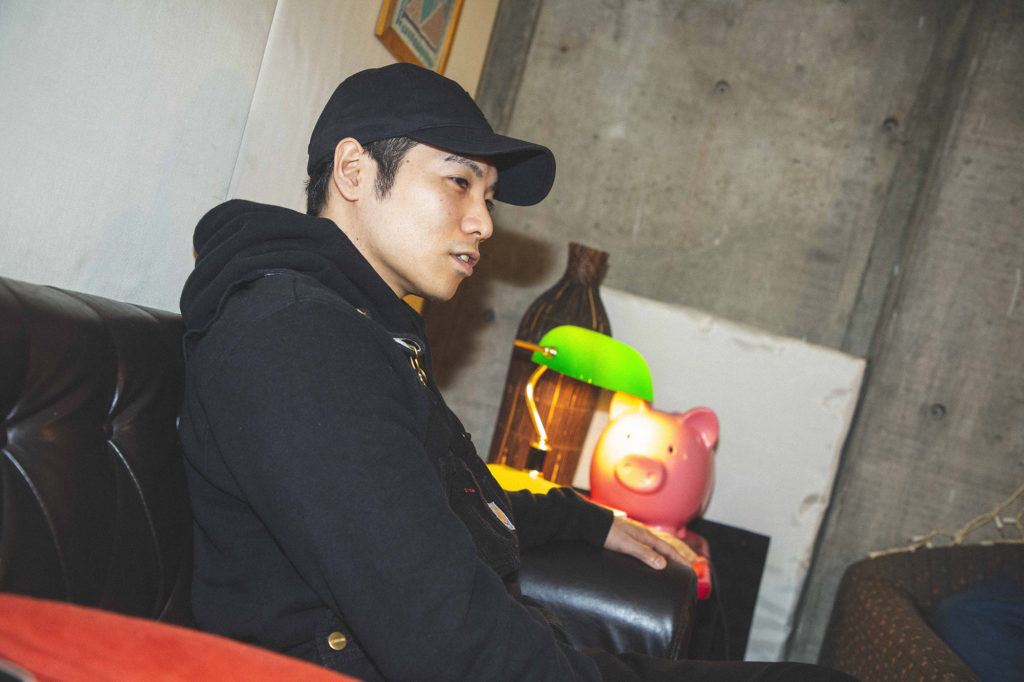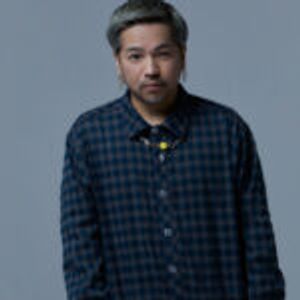KANDYTOWN rapper Ryohu has completed his first album, “DEBUT.” As an artist who has developed his work without restraints or boundaries, Ryohu has jammed with all kinds of artists and bands outside of the hip hop genre. And after honing his musical style with this broad-minded approach, he’s made his first real debut album at age 30. The album recounts his journey, and with the help of Keiichi Tomita and other trusted producers/musicians, he shows a new musical approach. It’s a significant album, one that shows that the true pleasure of living in the moment is celebrating life. I asked Ryohu to tell me about how this album came to be.
I wrote music about my life and that became this album
──Considering your music career up to this point, the fact that this is your first album is very moving.
Ryohu: Actually, if the concept of a “first album” didn’t exist, maybe I wouldn’t have made an album like this. I think it would’ve been very natural to keep doing what I had been, but this year, I turned 30. Looking back at how I started making music in middle school, and made music with crews like ZUTTOZULETTELLZ and BANKROLL from when I was 19, I think this was the right time to make a first album. Before I had even turned 20, I’d have Hama [Hama Okamoto/OKAMOTO’S] and Reiji [Reiji Okamoto/OKAMOTO’S] take me to Shimokitazawa GARAGE [A music venue that could be called Ryohu’s home ground], and from there, I was jamming with all kinds of musicians. That’s how I met Ryosuke [Ryosuke Nagaoka/PETROLZ] and Koi-chan [Yusuke Koide/Base Ball Bear], and I hung out with so many older musicians. I think I was always like a little brother to the older guys.
──That’s true.
Ryohu: But even back then, I had thoughts, although vague, of myself at 30. Like how I wanted to become an independent man, rather than everyone’s little brother. Through my 20s, I thought it’d be fine to just go with the flow, but when I turned 30, I felt like that would be a bit uncool.
──I think in your 20s, your approach to music was to go with the flow while also valuing the present moment and your relationships.
Ryohu: Right, I was just going with the flow. Actually, that was a conscious choice. That’s the way I lived my life, and in my late 20s I got married, and in August of this year, my child was born.
──In regards to songs from your album, “External” and “You” both express your feelings about becoming a dad.
Ryohu: I’d recorded “External” and “You” by December of last year. I found out I was going to have a kid while making this album, so I thought that should be reflected in the lyrics. I didn’t know if I was going to have a boy or a girl, but I wrote “You.”
──In that sense, this album is like a documentary about everything you’ve been through, isn’t it?
Ryohu: That’s true. It became a historical album that contains my memories, and that’s how I wanted to the album to be. I’ve made albums before, but this time, I was more conscious than ever of leaving my mark on the world.
──It became a monumental work.
Ryohu: Yeah. Also, there will probably be people who want to listen because it’s technically a first album. But I wanted to also include the people who already listen to my work, and show everyone the passion and significance behind my music.
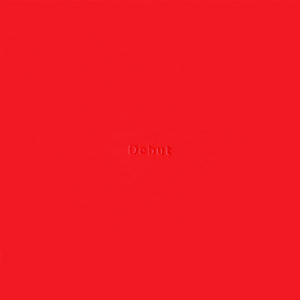
──If you’d made this album one or two years earlier, it definitely wouldn’t have turned out like this.
Ryohu: I definitely don’t think it would have. I think it was really huge that the words I wanted to say and can say have changed. Although on the flip side, there may be things I can’t say anymore, too.
──But I think the simple words hold more power now.
Ryohu: Maybe that’s the charm of being in your 30s? (laughs)
──I think it’s the persuasiveness.
Ryohu: That’s true. Maybe it’s the persuasiveness of the words I couldn’t say in my twenties. So, it’s not that I wanted to make this kind of music. It’s more like I wrote music about my life and that became this album.
Mixing Tomita’s pop sense with my style nearly reaches the limit of how pop I can get
──For sure. The album has songs with a trap-like beat, but it’s not a trap album, and it’s an album by a rapper who knows his old school hip hop, but it’s not a boom bap album. I think this album really shows your unique music and hip hop style. I think this is due in large part to the fact that you worked with Keiichi Tomita on many of the songs.
Ryohu: That was really huge. There were a lot of songs about me on this album, so there weren’t many songs that were directed at everyone else. “The Moment,” which I made with Tomita, is a large-scale song, but the lyrics themselves are basically about things that are very close to me. But on the other hand, I think “The Moment” allowed me to dig deeper within myself. “The Moment” is an extremely positive song. The singular concept behind “The Moment,” of living in the moment, is related to all the other songs, and I guess it’s also the goal of the other songs. It’s like a deep and detailed depiction of that concept.
──When did you make “The Moment?”
Ryohu: Um, if I’m speaking in chronological order, this album was really planned to be released earlier. I think it was supposed to be released before summer. But then the coronavirus happened, and I wasn’t really able to move forward mentally. For a while, I knew I had to make new music, but I just couldn’t.
──Your song ”No Matter What” expresses that kind of frustration, doesn’t it?
Ryohu: “No Matter What” is the only song I wrote about confronting the coronavirus pandemic. But other than that, I wanted to keep the rest of the songs positive, with absolutely nothing about the coronavirus. Also, the mastering for “The Moment” was finished by last December.
──Oh, it was done that long ago?
Ryohu: Yeah. But from around March, we weren’t able to play live shows because of the coronavirus, right? So, with that in mind, I decided to rework the release plan. When we were rethinking the music video for “The Moment,” I was talking to the director, Margt from PERIMETRON, and the producer Shu Sasaki, about how even though this song isn’t about coronavirus, we can send out a positive message about living through these times. I didn’t want to send out too direct of a message; I just wanted to create a music video that made everyone think about living in today’s world. This was a year where a lot of issues besides the coronavirus came up, wasn’t it?
──Like race and gender issues as well.
Ryohu: Right. And all of these aren’t issues with a simple solution. But I think that’s exactly why as individuals, we have to think about them. I wanted to include that sentiment in the music video, while at the same time making something that showed that if you want to live honestly, you’ll have these moments of worry like, “I wonder what my friend is doing now” or “I’m in a fight with my friend, what should I do?” It doesn’t matter if the problems are big or small. Thanks to the fact that we were able to create a music video that expresses those feelings, I think “The Moment” gained more depth.
──I think it’s also that “The Moment” had a lot of potential as a song. It was created before coronavirus, but it’s become a song you can still sing after the coronavirus.
Ryohu: That’s true. Tomita was a big help in that regard.
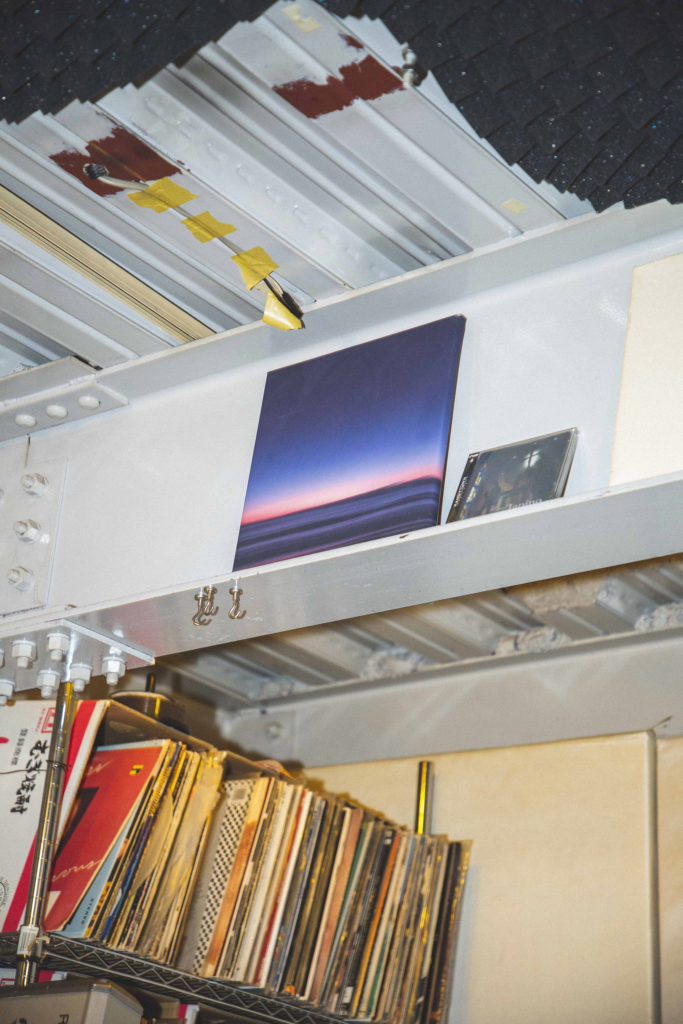
──In the US, combining rap and gospel choir is recognized as a specific style, as we see with the artists like Chance The Rapper and Kanye West. However, it was unexpected for you to incorporate a choir. But I heard this song and thought, “Wow, he’s been hiding this trick up his sleeve.”
Ryohu: If I’d made it by myself, I couldn’t have made this kind of beat. I’d never made anything resembling a positive song in the first place. I started out like, “What is positive, even?” (laughs)
──Up until now, you probably wouldn’t have liked it if someone told you a song was positive.
Ryohu: That’s true. I’m the type of person who is like, “Shut up!” when someone tells me to cheer up or do my best. Like, “I’m already on it without you having to tell me!” (laughs) But now, I think the best thing you can do is live life to the fullest, in the present.
──I think the beat in “The Moment” makes it easier to express that, too.
Ryohu: I think so. When you’re working on an album, it’s standard to make a few songs that you think could potentially become singles. This time, I thought those shouldn’t be my beats. Of course, I had already made some beats. But I really didn’t want people to think that the first step I was taking with this album was to use my beats, because I didn’t want people to think that I was doing the same thing I always do. Ultimately, I wanted my first step to be like a door to anywhere, so I could enjoy the process of opening that door, bursting out of it, and finishing the album with that energy. Tomita is on the same label [SPEEDSTAR RECORDS] as me, and I was also a featured artist on four Tomita Lab songs two years ago [Tomita Lab’s October 2018 album “Mentality, Physicality, Computer”], including the title song “M-P-C,” and it was really fun. I’ve done countless features up until now, but I think that was the most exciting one in recent years.
──Do you mean that in a musical sense?
Ryohu: Yeah. And also, I like his warm personality.
──Also, I really feel like Tomita has a lot of respect for hip hop. I sensed that from how he uses the choir in “The Moment,” too.
Ryohu: Yeah, he listens to a lot of hip hop. When Tomita used to DJ, he would put on all kinds of hip hop music.
──I think he’s someone who really shows unparalleled wisdom as a pop maestro, because including his understanding of jazz and fusion, he’s fundamentally a real alternative musician.
Ryohu: Yeah. I think mixing his pop sense with my style nearly reaches the limit of how pop I can get. I think “The Moment” is right at the limit of what I can do as a solo artist within what I consider the Japanese pop world. Maybe that limit will change a few years down the road, but I think that’s where my current limit is.
──I see. That makes a lot of sense.
Ryohu: I had a meeting with Tomita around last October or November, and we were talking about what kind of song would be good. There was one choir song we agreed on. I like beats that incorporate choirs, but I’d never tried making one, so I told Tomita-san that I didn’t want to just copy something. I’m not a regular churchgoer, and I’m not well-versed in the cultural background behind gospel. So I thought it would be tacky for me as a rapper and musician if I just jumped on the bandwagon. So that’s why as a Japanese rapper, the way I wanted to incorporate choir—I wanted it to be different from Chance and Kanye’s approach, with a song that worked for Japanese rap, so I’m glad it turned out that way. I was nervous at first, and thought that I would feature a singer who could actually sing, but Tomita quelled a lot of my worries as we worked on it, and it turned out this way.
──That’s the work of a producer.
Ryohu: I think so. I wrote the lyrics to the hook at the studio, and when I asked, “Is it okay to keep the lyrics this simple?” he told me, “Actually, I think you won’t be able to write this later.” I think he’s right in that if I wrote it at home, I’d overthink it and write something hard to understand. Once again, I thought Tomita was really amazing.
A rapper and a musician. I think I’m both of those things.
──I think “The Moment” makes introspective songs like “Heartstrings” or boastful songs come alive.
Ryohu: That makes me happy. “Heartstrings” is the only song that memorializes the way I used to be—how I thought that ambiguity was everything. (laughs)
──The last song, “Rose Life,” made me be like “Wow, Ryohu is singing!” It’s simultaneously charming and touching. (laughs)
Ryohu: That song was a love song, so I figured I should properly sing. I’ve had the beat for a while, but I couldn’t write the lyrics for some time because I was too shy.
── Is the person reading the letter in “Tatan’s Rhapsody” your grandma?
Ryohu: That’s my wife’s grandma. Just before that, I’d found an actual letter my wife’s grandma wrote me, and when I read it, I felt like her grandma had written what I wanted to say. Like how to approach music.
──It’s like it talks about the essence of music in a simple way.
Ryohu: Exactly. The content of this letter relates back to the way I work, and rather than explain it myself, I thought it would be nice if what her grandma had said to me was conveyed to the people listening to this album. So I asked her to read it aloud to me. She was really happy.
──I know I’m repeating myself, but this album is really about life.
Ryohu: Yeah, it’s about life. And it goes on from here.
──I think it’s not so much about the major release, but the fact that you turned 30 and were able to show where you are in life and your music. And on top of that, with Tomita’s help, you were able to do something fresh and pop, which I think is very valuable.
Ryohu: I feel like my wings have officially sprouted.
──By the way, what were the reactions from KANDYTOWN members?
Ryohu: They said, “You’re a musician.” I get told all the time that while I’m a rapper, I don’t really fit the image of a pure rapper. So they told me, “That’s probably why you’ll be able to continue as a musician for a long time.”
──I think from a certain time, you started to pursue a career not only as a rapper, but also a musician.
Ryohu: That’s true. Maybe I chose that path because I simply like music.
──KANDYTOWN’s beats feel like they were made by a musician.
Ryohu: Maybe being a rapper and a musician is a big key idea. Normally, rappers might be included in the category of musicians, but in my mind, they’re independent of each other. I think I’m both of those things.
──It might be too soon to talk about this, but after this album, do you have a vision for 2021?
Ryohu: I’m avoiding thinking about that on purpose. I want to have everyone listen to this album and then find out what they thought and felt about it. Maybe the feeling that comes after the satisfaction of releasing my first album will lead to my next album. If there’s anything I could say right now, it’s that although there are more people who were a part of this album than ever before, I think there could be even more people involved. I’d like to try making albums with even more kinds of people. This time, I put importance on singing myself, but I think next time, it’d be nice to have some songs with a featured artist singing the hook. I think I’d like to make something with people I hang out with, the people who I’m close with but have surprisingly never made a song with, or people I’ve jammed with on stage but never made a song with. That’s about it, but I worked hard in 2020 to make this album.
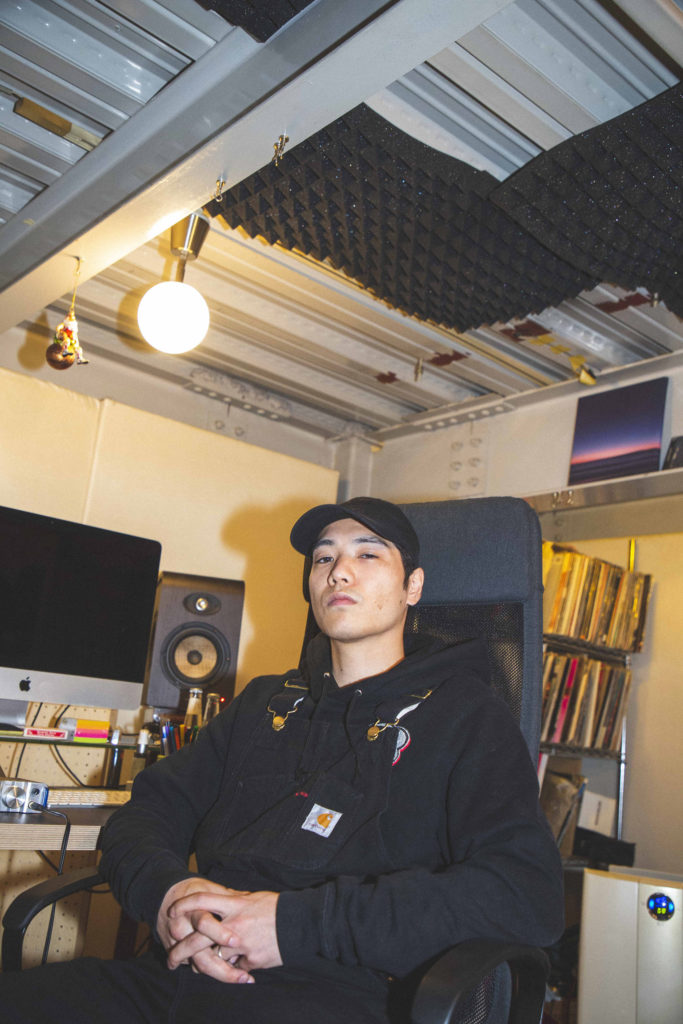
Ryohu
Ryohu is a beatmaker/rapper who is part of the hip-hop crew KANDYTOWN. He started his music career in his teens, and was part of ZUTTOZULETELLZ with OKAMOTO’S members. In 2016, he released his first album with KANDYTOWN, the self-titled “KANDYTOWN.” In 2017, he began seriously working on his solo career, releasing the EP “Blur” (2017) and the mixtape “Ten Twenty” (2018). He has also been featured on songs with artists such as Base Ball Bear, Suchmos, Petrolz, OKATAMOTO’S, and AIMYON.
Twitter:@ryohu_tokyo
Instagram:@ryohu_tokyo
https://www.ryohu.com/
Photography Kentaro Oshio
Translation Aya Apton

